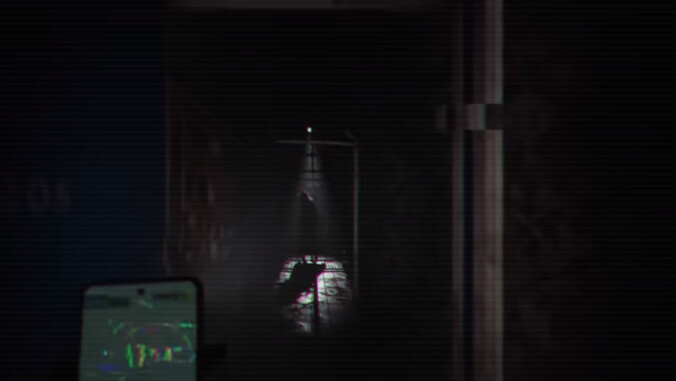Game Theory: Maybe every Silent Hill game should be 2 hours long
Konami just released The Short Message, the first Silent Hill game in a decade, and it suggests an exciting new direction for an old, moribund series

Every Friday, A.V. Club staffers kick off the weekend by taking a look at the world of gaming, diving in to the ideas that underpin the hobby we love with a bit of Game Theory. We’ll sound off in the space above, and invite you to respond down in the comments, telling us what you’re playing this weekend, and what theories it’s got you kicking around.
It feels telling that, of the two games pretty much everyone agrees they like from Konami’s long-running Silent Hill horror franchise, one is more than two decades old at this point, and the other no longer exists at all. Even the interesting outliers in the series (the oddball Wii game, the early pushes into first-person horror with Silent Hill 4) all exist in the shadow of 2001’s Silent Hill 2—now set for a high-profile remake, because of course it is—and the bizarre, brilliant horror short P.T.. The latter of which just got a spiritual successor of its own this week in the form of The Short Message, the first new Silent Hill game to come out in a full decade, which was announced for almost immediate release at Sony’s recent State Of Play event.
Although we haven’t had a chance to play The Short Message yet, the surface similarities to the Hideo Kojima-directed P.T. aren’t hard to see: From the trailer, and early write-ups online, the free game sends players down a series of hallways in a building we’d describe as “haunted as hell,” solving puzzles in first-person, while a nightmare creature hunts and harasses them from the shadows. Combat is non-existent; tone and dread are everything. Maybe the most important similarity to Kojima’s cult classic, though, comes in length: Like P.T., players are expected to get through The Short Message in, well, a short time, spending about two hours traversing an abandoned apartment building as they unravel a story of self-harm and suicide centered on a trio of young women.
That shorter timeframe feels like an especially good fit for Silent Hill, which has always prioritized surreal shocks over more concrete forms of horror. (If Capcom’s Resident Evil series, which Silent Hill has spent its entire existence operating in the shadow of, is about the fear of external threats—zombies, viruses, people securing fire exits with improbable gem-based locking mechanisms—then Silent Hill is about the fear of the self.) That’s a difficult thing to maintain across 10 hours of playtime, which is why Silent Hill has only really ever managed it once—or twice, maybe, once the Silent Hill 2 remake comes out. (Or maybe not, given the looks we’ve been getting at the combat-heavy new release.) It’s part of what made P.T. feel so vital and groundbreaking when it appeared out of nowhere in 2014: It was a pure dose of dream logic shading into nightmares, lasting for just long enough to not wear out its deeply unsettling welcome. (We’d also argue that Kojima’s penchant for “clever” game design at the expense of everything else works much better at this scale than the multi-day epics he normally devotes himself to, but this is a column about Silent Hill, not that batshit-looking Death Stranding sequel he rolled out a fresh look at this week, so that’s neither here nor there.)
Long horror games almost always struggle with sustaining the emotions that the genre thrives on; it’s why Resident Evil games tend to become action games by the time you get a third or so of the way through them. (Much easier to keep a steady supply of thrills coming through fights and other mechanical joys, which aren’t inherently wedded to the terror of surprise.) The idea of Silent Hill switching to a sort of singles model, then, is incredibly encouraging: We’d rather play 10 short horror films set in this universe of steadily rising psychological dread than a 20-hour experience of smacking body horror monsters around with lead pipes. (We played all of The Callisto Protocol, thanks.) We’re excited to play The Short Message in its own right—early reactions to it have been strong, and that trailer looked genuinely creepy as hell—but we’re also excited to see it emerge as a new direction for a classic series that’s struggled mightily to find its place over the last decade and change.